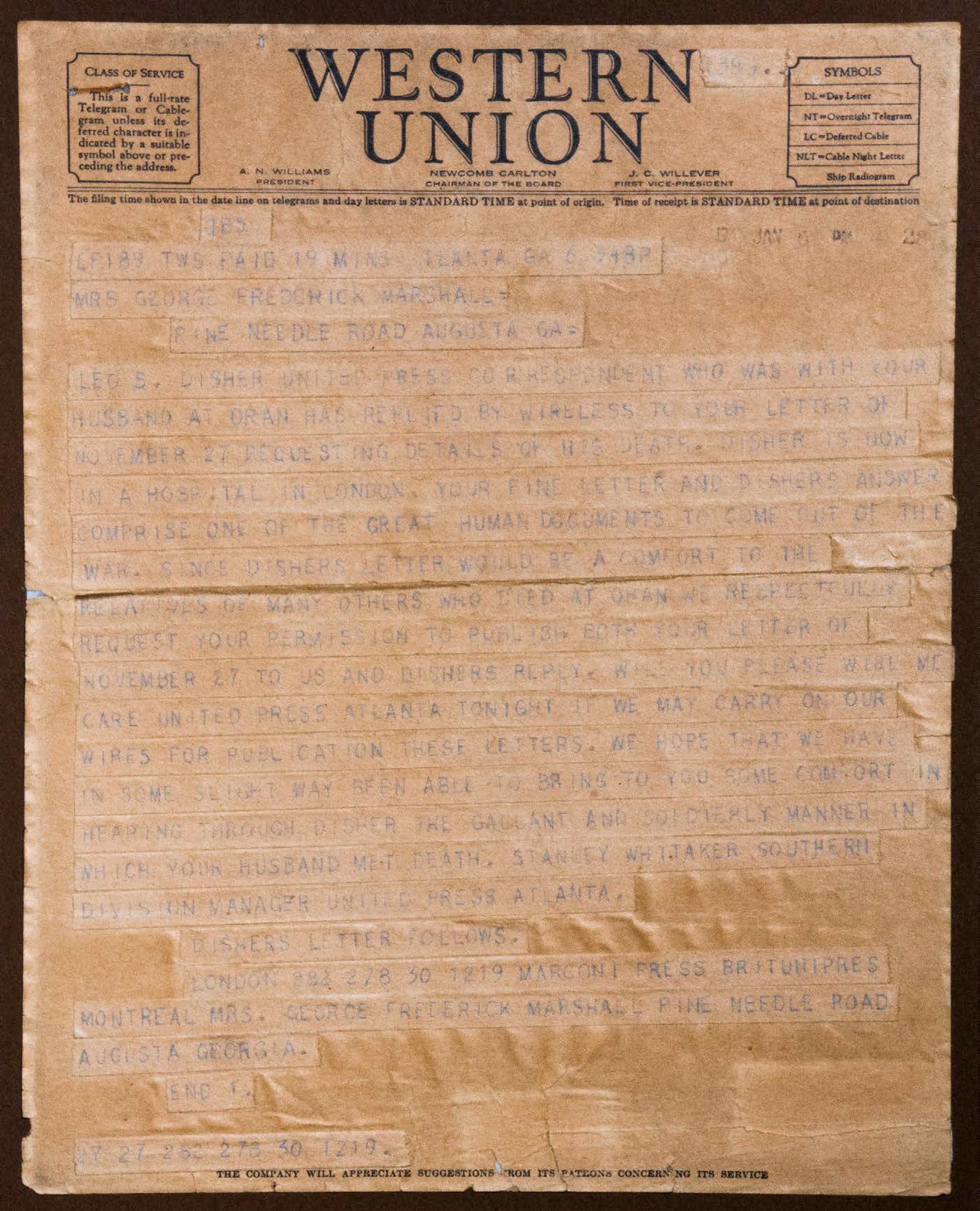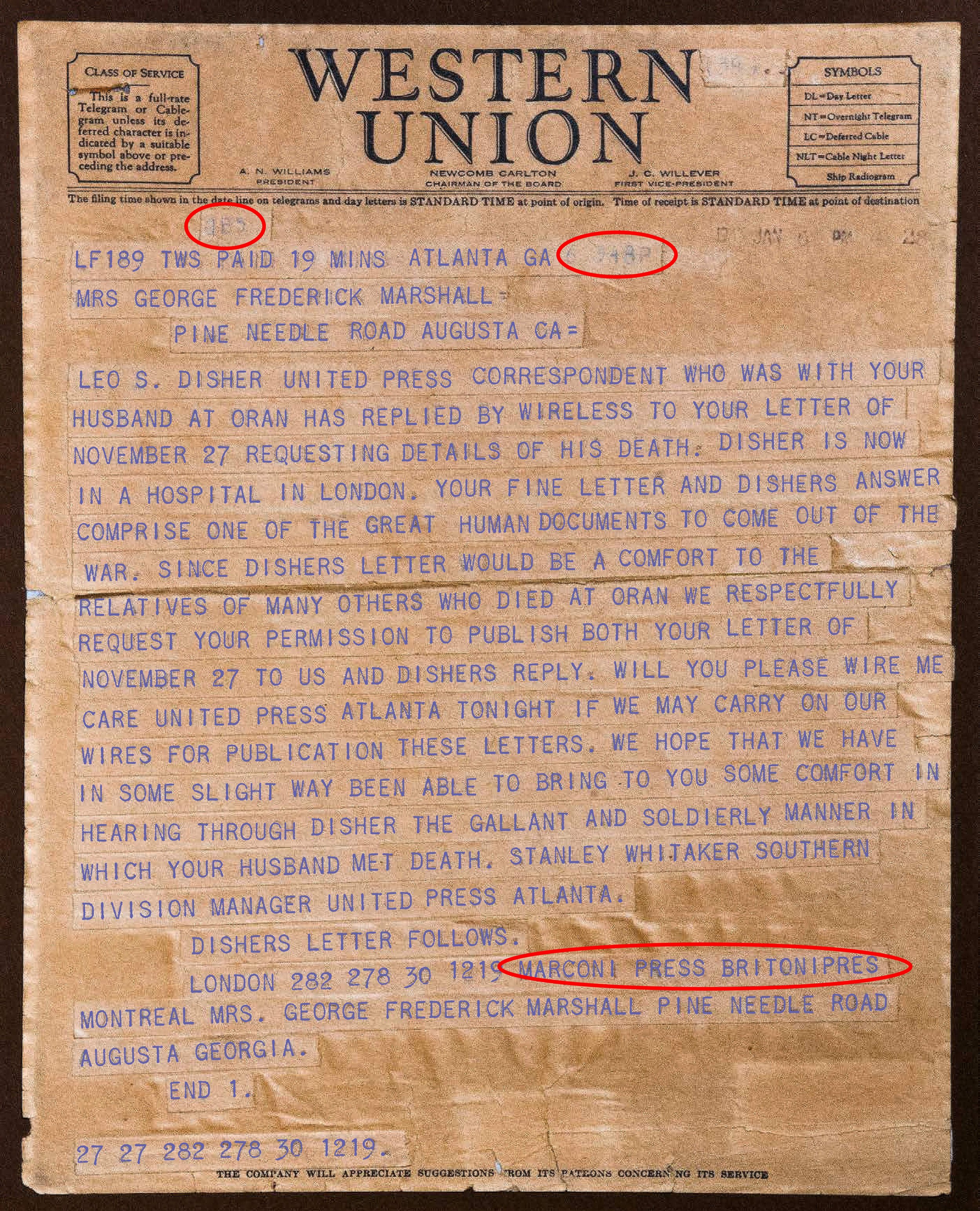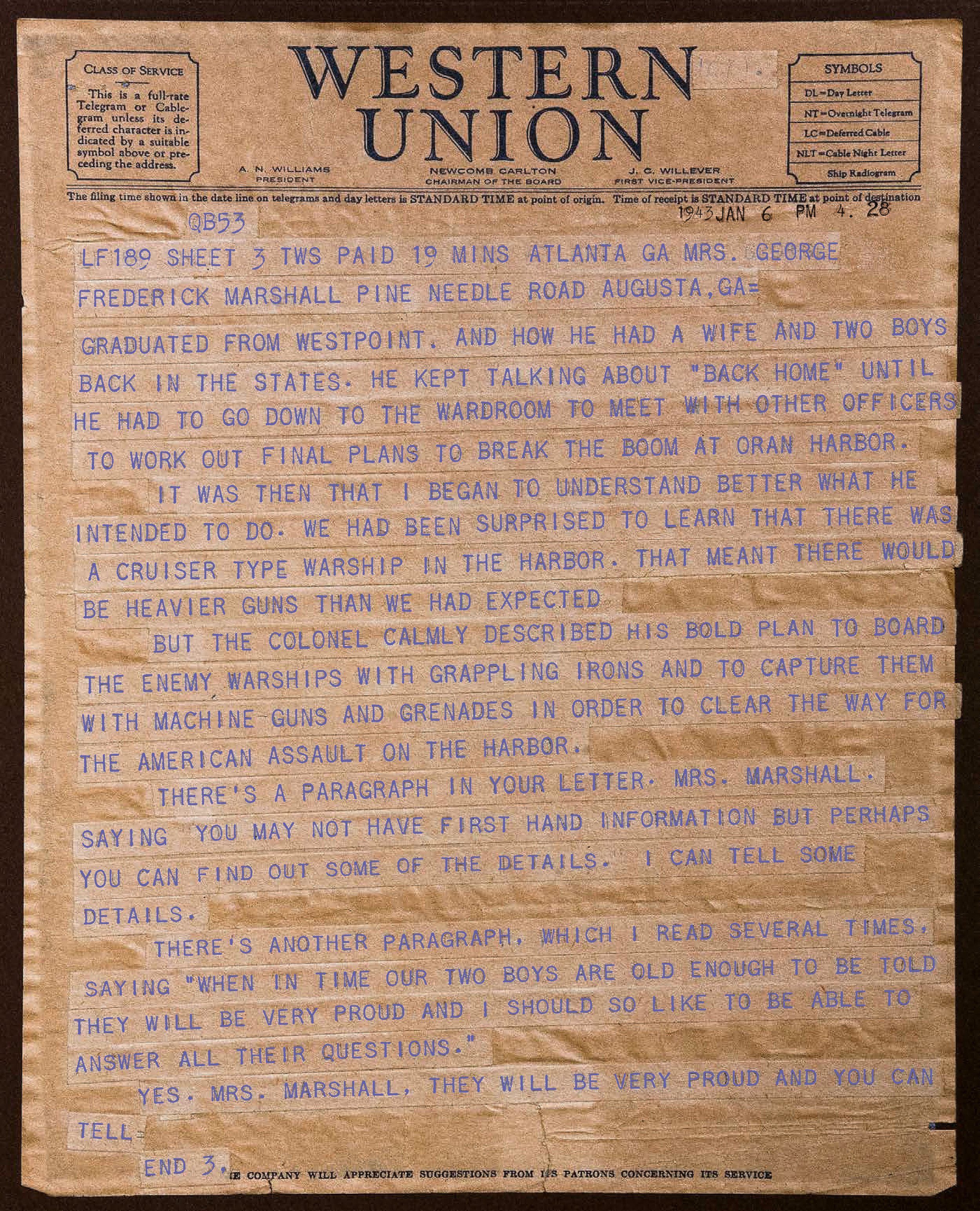When Mrs. Dahlis Marshall wrote to the United Press in December 1942, she was a recent war widow, seeking answers for the sake of her sons. Her husband George F. Marshall, Lieutenant Colonel United States Army, had lost his life in November 1942 during the battle of Oran Harbor, Algeria. Mrs. Marshall received notification of his death through the next of kin notification that so many families received during World War II. As the mother of two young sons, she knew she needed more details; one day, the children would ask questions, and she wanted to be able to give them answers. Leo Disher, United Press war correspondent, answered the plea. He sent a document made from humble materials - a Western Union telegram.
Lt. Col. George F. Marshall
“The Sunday Sun” March 21, 1943. Mrs. Dahlis Marshall and sons Rick and Michael.
Telegrams were not produced with longevity in mind. At the time, telegram messages came over a ticker-tape machine, resulting in a typed-out message on a long, narrow ribbon of paper. The paper ribbon would then be cut and pasted in the proper order onto the message form. The degradation of telegrams is generally inevitable between the fast-drying inks, the glue, and acidic paper. This results in the document becoming brittle and acid burned, and the inks fading.
Below, the original telegram is shown in its aged condition. Although clearly well cared for during the years, the inks have faded and the paper has darkened, making the pages difficult to read.
Condition issues such as these are known as an inherent vice, and on some occasions, there are no conservation treatment options to address these intrinsic issues. One example is when inks fade. Once it has faded, conservation treatment cannot enhance the inks. However, digital preservation is a valuable option to replicate and visually restore the document in these cases. Digital preservation is an effective option when the document is of the utmost historical or familial importance.
Over 70 years after it was printed, when Lt. Col. Marshall's son, Rick Marshall, contacted The Center to help with digitally restoring the telegram, our team was honored to help. The Center's digital restoration specialist Mike Simi took high-resolution scans of the telegram and concentrated on recreating and enhancing the text through color correcting. forensic analysis, and font research. However, as certain typed letters and characters were still difficult to decipher, there was a strong collaboration between Mr. Marshall and The Center's team to interpret a few words.
The telegram that Mrs. Marshall received from Leo Disher is both poetic and tragic. Mr. Disher shares his experience of serving alongside Lt. Col. Marshall and provides Mrs. Marshall with the information she is seeking. He started his telegram with, "I believe, Mrs. Marshall, that I can help."
What follows is the remarkable details of a war hero, who, as Mr. Disher wrote, "never struck the ship's colors." The sentiment and spirit of Mr. Disher's letter to Mrs. Marshall culminate at the end, "But it is wrong for you to say you are "asking a great deal of me”, Mrs. Marshall. You are the one of whom a great deal was asked and proudly given. You and a great many others at home."
Digital reproduction, page 1.
Digital reproduction, page 2.
Digital reproduction, page 3.
Digital reproduction, page 4.
Digital reproduction, page 5.
The outcome is a revived letter that can be read clearly once again and appreciated in its original form, to continue the legacy of Lt. Col. Marshall. In 2012 Mr. Rick Marshall donated Marshall Park to the City of Raleigh in honor of his father, and he shares his father’s story online here: Marshall Memorial Park
As a child, Rick Marshall receives the Distinguished Service Cross on behalf of his father.
Rick Marshall in 2013 at the dedication ceremony for Marshall Memorial Park, Raleigh, NC.
Rick Marshall shares his thoughts on his father’s sacrifice and the enduring lessons of his father’s legacy in his own words:
“Marshall Park in Raleigh, NC is dedicated to one soldier, but in a larger sense it commemorates the entire generation that fought and won World War II. For five years, the free world pulled together as it had never done before, and has not done since. This is the reason freedom endures today.
Military dead and missing included 416 thousand from the United States, 383 thousand from the United Kingdom, 45 thousand from Canada, and 39 thousand from Australia. Those that stayed home and supported the war effort were equally important. Because of the unified military and civilian sacrifice, democracy achieved victory over dictatorship.
Perhaps of equal importance, the United States extended a helping hand to former enemies, including Germany and Japan. Doing so facilitated their recovery and created long term alliances. (…) We owe an enormous debt of gratitude to those who served and fought in that war, and should never forget it. We must ensure that their memory lives on in the minds of succeeding generations.”
It was an honor for The Conservation Center to be a part of this unique work and support the efforts of the Marshall family.
















